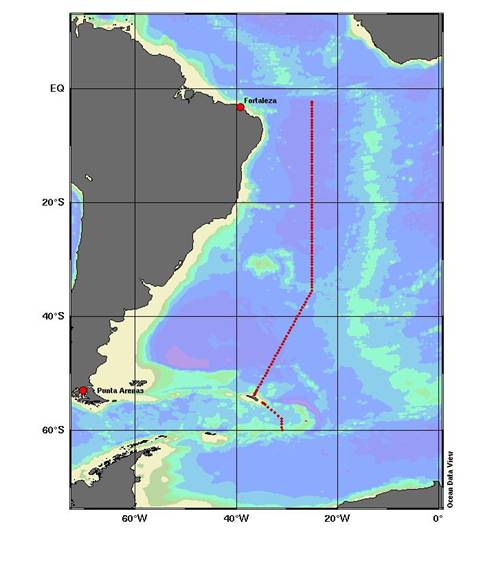Last week a study was published on the dimensions of the damage to the oceans as a result of human activity

Last week, leading media around the world published the findings of a study that dealt with the dimensions of the damage to the oceans caused as a result of all human activities. The study mapped the marine areas, the types of hazards and the degree of impact on integrated marine life systems across the globe. There were previous studies that focused on the impact of specific actions, but this study for the first time combined all layers of information to create a detailed global picture of the state of the oceans.
maximum resolution
The international group of scientists involved in the study divided the oceans into areas of one square kilometer and analyzed all the existing findings against a key of seventeen aspects and risks for each square kilometer. In the end, the findings in that area were weighted for a score indicating the price of the person's influence in a given area. The picture that emerged from the study shocked the researchers.
warning bell
The study states that only four percent of all oceans, most of them in the polar regions remained undamaged and about half of the ocean waters were significantly damaged. Most of the damage caused to the marine ecological environment is due to the process of global warming and as a result of increased fishing.
"The message emerging from the serious findings of the study should be an 'alarm bell' for the decision makers and policy makers in the world" adds Dr. Mark Spalding who participated in the study. "We must wake up and start managing the aspects of preserving the oceans and beaches in a more efficient and responsible way."
Hot in Tiberias
In the same week, news was published in the Israeli media about tens of thousands of tilapia fish found dead in the Sea of Galilee. The investigation conducted by the police raised the suspicion that a fisherman in Taberini was probably trying to take revenge on another fisherman due to a dispute over the use of fishing grounds. The same fisherman, by the way, was accused a year ago of the same offense.
The daily dose of poison
The comprehensive research on his threatening findings received wide media coverage around the world. To the peoples who do not live here, the short-sightedness and clumsiness of man whose existence depends on the oceans is probably interesting enough.
The media in Israel, on the other hand, chose to cover the economic consequences for the fish merchants and the criminal side of the incident, alongside warning the public about the poisoning in the Sea of Galilee - without a single word about the implications of fish poisoning in the only fresh water lake we have.
There is something disturbing about the lack of reference to the environmental aspect in the leading media in Israel.
Crime, it turns out, can always be used as a journalistic story, but the preservation of the environment and the future of the planet - not really. It is not for nothing that the important study was not published in the media in Israel.
A life worth more
The level of media coverage in Israel of the aspects of environmental conservation and protection of the few remaining animals must go up a notch. Those who read between the lines of the coverage of the fish poisoning may assume that from the point of view of the media, if all the fish in the Sea of Galilee disappear, the only damage that will be caused is to the fish dealers.
I wonder how the media will cover the event of mass poisoning of wild animals with no commercial value.
Courtesy article Fisherman in danger
http://news.bbc.co.uk/2/hi/science/nature/7241428.stm

4 תגובות
Two months ago there was a mass poisoning of hypocrites in the area
Jerusalem
Did someone make a fuss about it???
Totally agree
But the poison, probably in more sane doses, has been pouring into the Sea of Galilee for years. This time the fishermen simply exaggerated. Just as there was no enforcement then, there won't be any now either.
Tabreini for Tabreini - Indian (already said)
Another 20 year?
Something here is optimistic...
I'm more like two years...
: )
It's shocking how the state treats the eyes.
The main thing is not to harm the economy, I believe that in another 20 years we will not have any Kinneret, if we will at all..